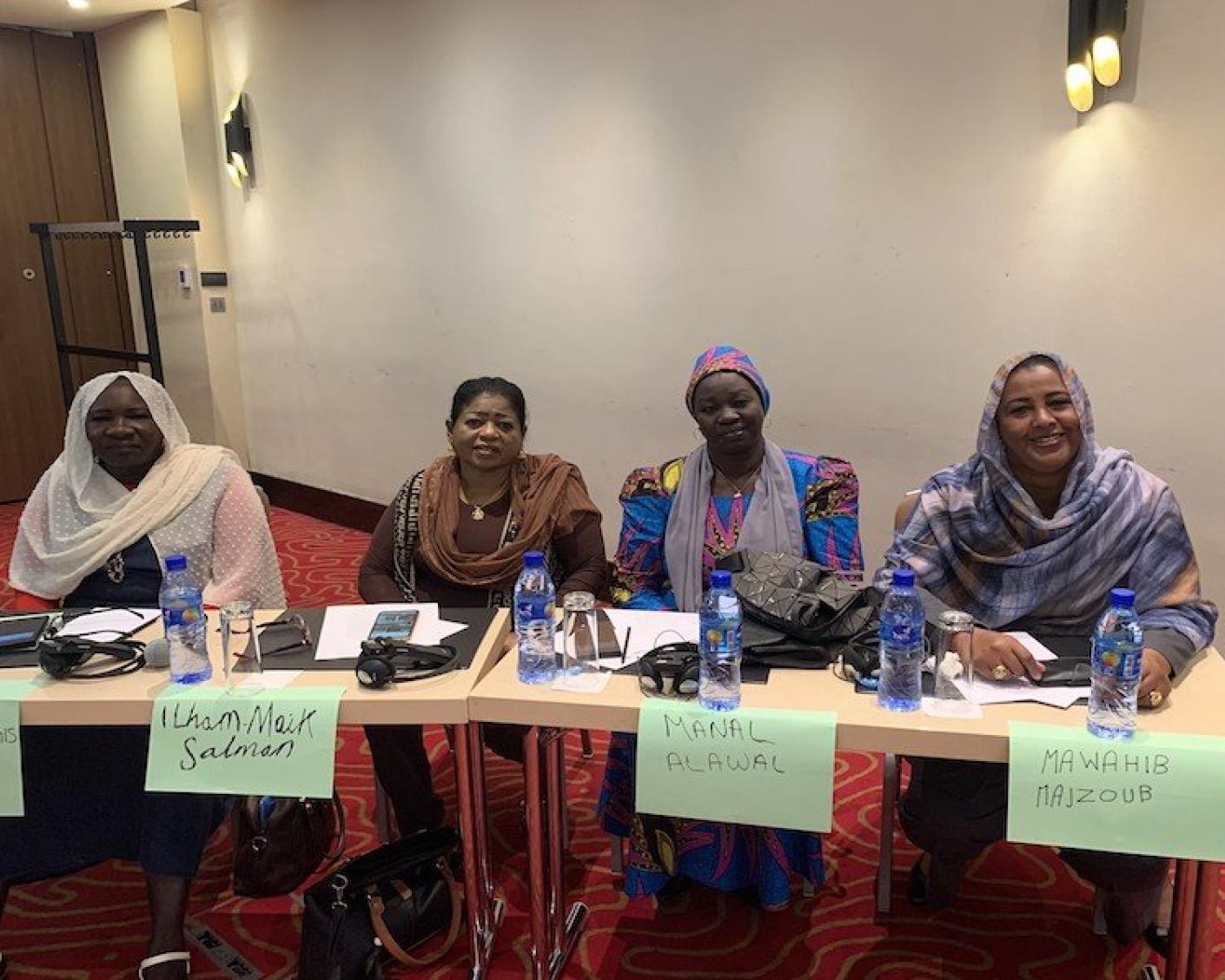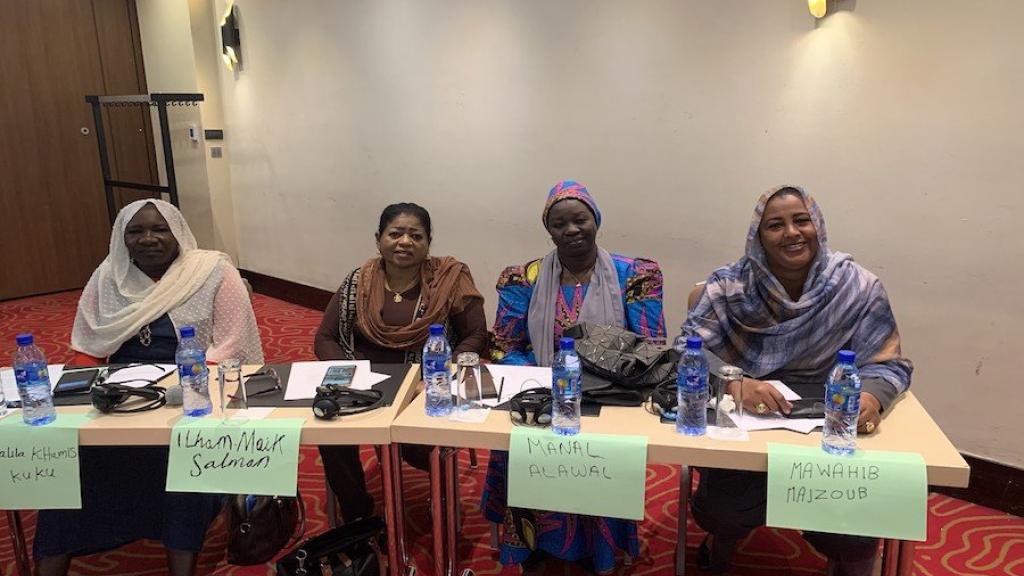The 2019 Sudanese revolution started with street protests in late 2018, initially sparked by continuous hikes in food prices and then growing into months long pro-democracy protests. On 11th April 2019, a coup d’état deposed President Omar al-Bashir after 30 years in power. Following further protests and the 3rd June Khartoum massacre, the Transitional Military Council and the Forces of Freedom and Change alliance agreed on the formation of a civilian-led transitional government – a 39-month transition process to return to democracy.
WFD engaged with key stakeholders working to support the country’s democratic transition through various projects
1. Parties, Peace, and Reconciliation (2018)
In early 2018, WFD implemented an FCO-funded project that aimed to build the capacity of political party members. A training workshop was delivered, focused on the role of political parties in peacebuilding and building consensus, as well as preparation for the planned elections.
2. Capacity Building in Peaceful Negotiation (2019)
In 2019, following the ousting of Omar Al-Bashir and the formation of a Sudanese Transitional Government, WFD delivered a British Council funded project to train women leaders on negotiations and peace building. The project aimed to build the capacity of Sudanese women as negotiators to prepare them for the Sudan negotiation processes.
3. Supporting Inclusive Political Transition in Sudan (2019 – 2021)
In 2019, supported by the UK Foreign, Commonwealth and Development Office, WFD worked closely with key leaders in Sudan over the course of the programme and developed links between them to ensure better coordination and communication on critical topics related to the democratic transition process. Through this programme, WFD worked with democratic institutions such as the interim Government, the Transitional Sovereignty Council, and local civil society organisations to support a peaceful transition towards a multi-party democracy in Sudan.
As a result of the programmes:
- Women were equipped with increased understanding of and ability to work with the negotiation tracks of security, governance, and humanitarian assistance, and with integrative bargaining techniques. This is as a result of WFD facilitated training.
- WFD organised and facilitated a delegation visit from the Sudanese interim institutions to visit Tunisia in February 2020. Members of the transitional government learnt from the successes and failures of the Tunisian experience. Participants benefitted from peer-to-peer exchange and highlighted the importance of tolerance between the various components of the political spectrum, and of coming together for the public interest, and for the aim of moving the country towards democracy, especially in a transitional phase. The participants in the Study Visit to Tunisia were, in each of their own roles, influential and were able to transfer the knowledge and learnings to their colleagues and peers.
WFD also engaged Sudanese stakeholders in our regional wide project working to end violence against women and girls in the Middle East and North Africa.

